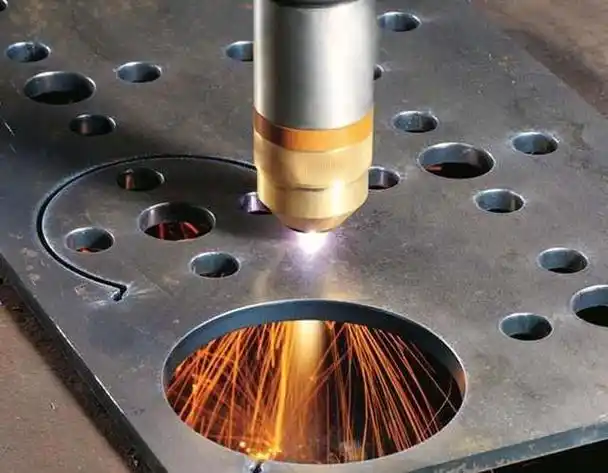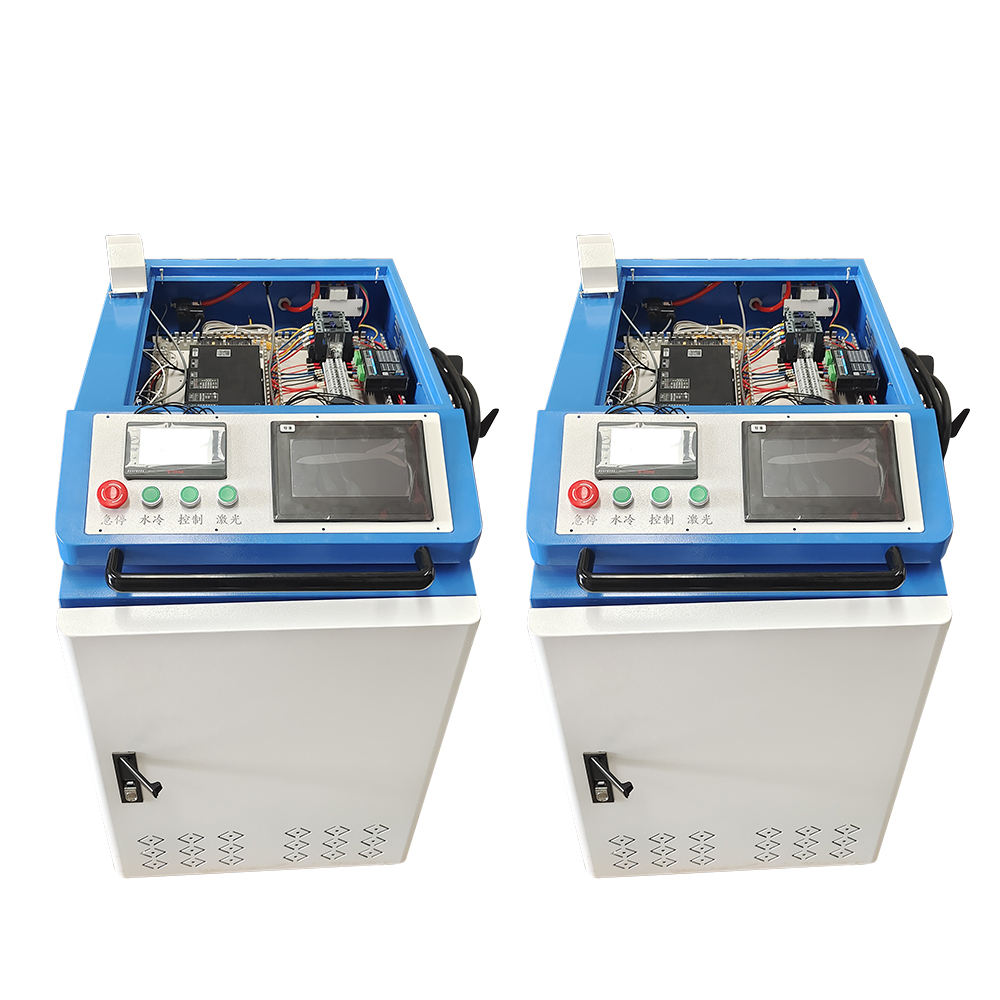In today’s manufacturing industry, laser cutting and welding machines have become two of the most essential tools for metal fabrication. From automotive and aerospace to construction and consumer goods, these technologies are highly valued for their speed, precision, and ability to handle complex materials.
However, many manufacturers and buyers often ask a common question:
“Can a single machine perform both cutting and welding?”
The answer is: technically, yes. For example, a laser welding machine can sometimes be adjusted to cut materials. However, this approach comes with significant limitations. In real-world production, using one machine for both tasks rarely achieves optimal efficiency or quality. On the contrary, using dedicated machines for each process ensures better results in both performance and productivity.

Laser Cutting Sample
Why a Laser Welding Machine Can Cut Materials
Fundamentally, both laser welding and laser cutting rely on the same principle: a highly focused laser beam delivers concentrated energy to a specific point on the material. By increasing the laser power, adjusting the focal position, and fine-tuning other process parameters, a welding machine can concentrate enough energy to separate material rather than fuse it together.
For example, when working with thin metal sheets or performing simple straight cuts, a laser welding machine can act as a temporary cutting tool. While its performance cannot match that of a dedicated cutting machine, it can still provide practical results in situations where speed and flexibility are more important than precision.
This capability is especially useful in urgent or small-scale situations. Manufacturers do not need to stop production to wait for a cutting machine; instead, they can quickly adjust the welding system to perform functional cutting. In this sense, a laser welding machine offers some multifunctionality and backup capability, adding value to the workshop.
Limitations of Using a Welding Machine for Cutting
Although a laser welding machine can technically perform cutting tasks, it has several significant limitations that make it far from ideal for conventional use:
Precision Issues
Compared with dedicated laser cutting machines, welding machines usually produce wider cuts with less consistency. This results in rougher edges and lower dimensional accuracy, impacting the overall quality of the finished product.
Speed Limitations
Laser welding systems are optimized for joining materials rather than separating them. Consequently, cutting is considerably slower, especially with thicker materials or complex geometries. In high-volume production, this inefficiency quickly accumulates.
Surface Quality
Cut edges are often rough and uneven, requiring secondary finishing such as grinding or polishing. This increases labor time and cost, offsetting the supposed advantage of a “two-in-one” machine.
Frequent Adjustments
Switching between welding and cutting requires constant tuning of power, focal length, and gas parameters. This not only increases the risk of human error but also causes downtime for recalibration, reducing overall productivity.
Equipment Stress
Welding machines are not designed for continuous cutting operations. Using them this way can overstrain optical components, laser sources, and cooling systems, potentially shortening machine lifespan and leading to costly maintenance or premature replacement.
In short, while a laser welding machine can handle occasional cutting, its limitations in precision, efficiency, and durability make it unsuitable as a long-term replacement for a dedicated laser cutting system.

Laser Welding Machines
Marketing Myths vs. Reality — ZS Laser’s View
In today’s market, some manufacturers heavily promote so-called “multi-functional laser cutting and welding machines,” claiming that one device can handle welding, cutting, and even cleaning tasks. While it is true that a laser welding machine can cut thin materials or perform surface cleaning by adjusting parameters, marketing it as a key selling point is more hype than practical advantage.
At ZS Laser, we take a different approach. Our laser welding machines are indeed capable of flexible cutting and cleaning operations, but we do not market them as all-in-one solutions. Instead, we believe specialization yields better results — dedicated machines deliver higher efficiency, stability, and quality for their intended applications.
ZS Laser focuses on the professional development, manufacturing, and sales of specialized laser equipment, offering a complete product lineup:
Laser Welding Machines — for precision joining
Laser Pipe Cutting Machines — for high-speed automated pipe processing
Laser Marking Machines — for permanent, traceable identification
ZS Laser emphasizes specialization over overhyped multifunctionality, ensuring each machine performs optimally for its designed purpose.
While the concept of a “multi-functional laser cutting and welding machine” may sound appealing, in practical production the limitations in efficiency, precision, and quality make it clear: dedicated equipment is the wiser choice. Cutting tasks should be handled by dedicated cutting systems, while welding and marking require their own optimized solutions.
If you want to improve the efficiency, stability, and quality of your production line, we invite you to contact ZS Laser today for consultation or free sample testing. Our team will help you select the laser solution that best meets your needs.
 ZS Laser Equipment
ZS Laser Equipment


WhatsApp
Scan the QR Code to start a WhatsApp chat with us.